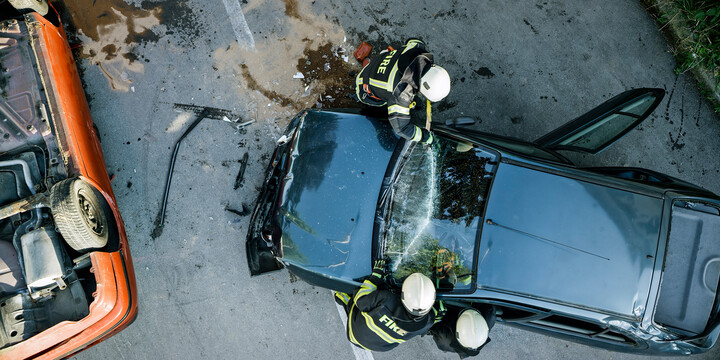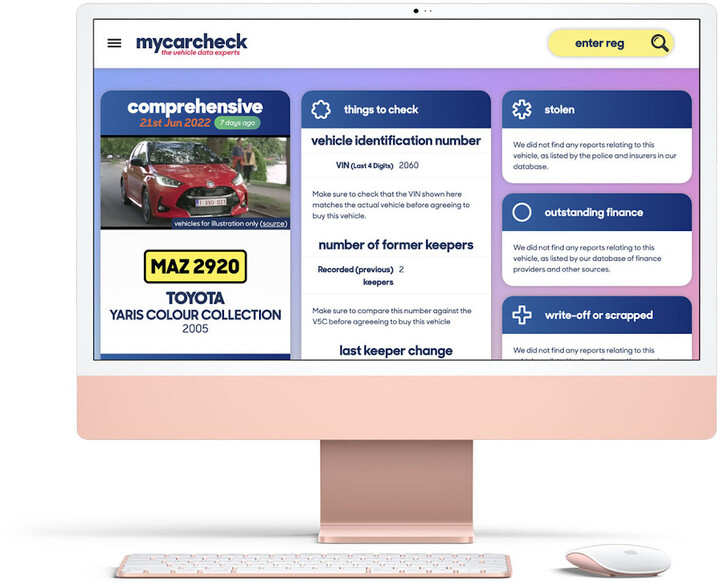
what to do when you have an accident
FREE Car History Check
See MOT history, valuations, detailed specs and more… AND upgrade to see if any vehicle has been stolen, has finance or has been written off from just £4.99
Being involved in a car accident can be a truly frightening experience. From the initial shock to the ensuing worries about any injury, repairs to the cars involved, and the prospect of having to claim on your insurance all create a melting pot of stress.
Sometimes, staying calm and knowing what information you need to collect can make the whole incident a lot less stressful. In this guide, we will give you a rundown of the steps to take if you have been involved in an accident and how to stay calm throughout.
What do you do after an accident?
There are many different severities when it comes to car accidents. Some can lead to the car becoming a complete write-off, whereas a small ding could leave no visible damage whatsoever. Either way, an accident is an accident and you should try and treat any collision as a learning exercise.
If a car reverses into you, for example, leaving no visible damage, you should still collect contact and insurance information in case hidden damage is subsequently discovered. If the accident does leave either car with minor damage but still operational, and there have been no injuries, you should still take photos of any damage. Record the information about the makes and models of all vehicles involved, the time and date of the collision, and the weather and road conditions. If any person involved in the accident is injured then the appropriate emergency services should be contacted immediately.
You also need to let your insurance company, even if you choose not to make a claim for the damage caused. If you do not report it, you might end up affecting your insurance cover.
What happens when you have an accident and it’s your fault?
In general, if you collide with a car from behind it is usually deemed to be your fault. This is because there is evidence to suggest that you weren’t at a safe distance from the car in front (therefore not leaving enough time to brake effectively), or that you were not paying attention when the car in front stopped.
In other types of incidents, whereby no one can really be blamed, it is still a general rule not to apologise or admit fault in any way. Although saying sorry does not legally mean you are admitting fault, this verbal statement could be used against you if a court case arises.
Regardless of whose fault it is, you need to inform your insurance provider. They will handle the matter and establish where responsibility lies.
What do you do when someone hits your car?
If another car hits yours, you will likely be in shock and confusion initially. Ensure you have come to a stop and then turn off your engine. Do not drive away from the scene as this is a crime and can result in prosecution. Once your car is stationary and switched off, turn your hazard lights on and check yourself and any passengers for injuries.
Get out of the car and check the driver/passengers of the vehicle that collided with you and, if there are injuries, call the emergency services immediately. If you believe the other driver has been impaired by drink or drugs, inform the police about this as well. Also, make sure that all passengers and any pets are removed from your car and are waiting in a safe place until help to arrive.
Once you are sure that everyone is safe and that both vehicles pose no ongoing danger to yourself or other road users, you need to exchange details with the other party.
What details need to be exchanged in a car accident?
There are a few important pieces of information to collect at the scene of a car accident. These are:
- Full names
- Addresses
- Car registration number
- Car make and model
- Insurance details if available.
If there have been no injuries, you should still exchange insurance details as this will help speed up any claims process that might occur as a result. It is also beneficial in case injuries become apparent in the hours after the accident occurred. You should also provide your details if you hit a parked car or third party property like a fence or wall (you can leave a note if you cannot locate the driver/owner of the property).
How do I calm down after an accident?
Car accidents can leave everyone involved feeling nervous and apprehensive. The shock of the accident mixed with the fear of being involved in another one can leave drivers feeling apprehensive about getting back on the road. This is entirely normal so don’t worry!
Immediately after an accident, take some time to rest and recover. Try to slow down your breathing and practise counting from one to ten to try and reset your mindset so you can calm down. If you struggle to get back on the road in the days or weeks after an accident, don’t worry, this is normal for many people. Try taking shorter and simpler journeys to build up your confidence and don’t pressure yourself into driving unless you feel ready.
Make sure you know everything there is to know about your car, get a vehicle check from mycarcheck today.














